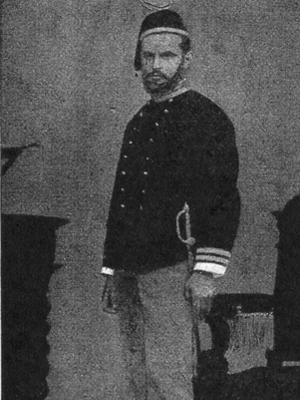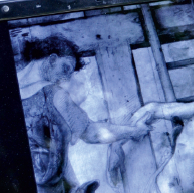
Francisco Javier Martínez | Investigador FCT - CIDEHUS
O CIDEHUS e os projetos em curso em torno do Magreb: da história ao Património

Uma das marcas distintivas do CIDEHUS diz respeito ao seu núcleo de investigadores, alguns deles com competências em língua árabe, ligados ao mundo muçulmano. Trata-se de um campo de estudo hoje muito importante, e com um grau de investimento que é raro em Portugal na área das Humanidades.
Destacam-se aqui alguns desses contributos, os mais diretamente associados ao Magreb.
Modernizing science and society in pre-colonial Morocco
The CIDEHUS of the University of Évora is a multidisciplinary center that focuses its research on the diachronic analysis of societal change and continuity processes. The south (of Portugal, of Europe, and of other geographies that are historically and culturally related to them) has been chosen as a privileged laboratory for observation of those dynamics. In this sense, the Maghreb, and especially, Morocco, stands as an obvious and convenient object of research due to its insertion within an Arab-Islamic space and culture that is at the same time non-Western and full of long-running, close historical connections with Portugal, the Mediterranean and Europe.
As a result of this, the CIDEHUS kindly offered to host our research project, which has been the basis for obtaining an FCT Investigator grant and exploratory FCT funding and which combines our double specialization in medical history and the history of the modern Maghreb. Its title is “Modernizers: the making of scientific elites in pre-colonial Morocco, 1873-1912”. The goal of this project is to write a history of the modernization of science, technology and medicine (STM) in Morocco built upon an interdisciplinary and cross-national analysis of the circulation of medical, scientific and engineering students in Europe and in European-style Moroccan institutions during the period 1873-1912. Current knowledge suggests that students sent abroad or receiving modern training in local institutions had a major role in STM modernization in 19th century, as well as in the political and social modernization of Moroccan society at large. The dynamics of mobility and re-insertion of students seemed, however, to change over time. In the first half of the 19th century, the Sultan sent young scientists to Cairo and Istanbul and employed them for his personal service, while in the decades around 1900 they were mostly sent to Europe and employed by the state, the army and other branches of the Sultanate’s administration.
The major aims of this project are: a. Mapping the collective of Moroccan students sent to France, Spain, Portugal, Belgium, Great Britain and Italy between 1873 and 1912. b. Determining the actual education provided to students by their host institutions. c. Determining the context and actual impact of students’ professional reinsertion in Morocco. d. Assessing the contribution of European-trained scientists to Moroccan nationalism and anti-colonialism. Our project addresses these questions in an innovative way, based on four major grounds. First, internationality, through the unique assessment of the role of students through a genuinely comparative/cross-national analysis. Second, interdisciplinarity, as it combines approaches from the history of science, the history of education, colonial studies and modernization theory. Third, prosopography: it stands on an established tradition of prosopographic studies but contributes to renew it through a “circulation” approach which follows the whole educational and professional trajectory of the students and their actual impact back in Morocco. And finally, on personal agency, trying to move beyond discourse analysis and constructionism by focusing on individual actors and their actions, thus placing the agency and practice of people at the core of research.
This project intersect with other research lines we have been developing for a number of years and which are also related to questions of scientific modernization and circulation of knowledge in the Maghreb. On the one hand, it converges with our interest on quarantines and public health in the modern Mediterranean, which has led us to create a Quarantine Studies Network for organizing conferences and prepare publications on the subject. On the other hand, we have also focused our attention on the history of Pasteur Institutes in the Maghreb during and after the colonial period through the organization of conferences in Paris and Tangier and the preparation of a monographic journal issue. Besides, our project is likely to intersect with the work of other researchers at CIDEHUS, either those which focus on the history of earlier periods of the Islamic world (in which Portugal and Southern Europe at large were actually under Islamic rule), or those which reflect on the global circulation of knowledge and the organization of scientific networks, or also those which deal with the impact of science in society, politics and culture – and vice versa.
Finally, our project intends to influence present policies and debates in European societies. The training and re-insertion of young scientists has been and remains a strategic element in EU countries' policy of cooperation with Islamic Mediterranean countries. Besides, scientific and educational cooperation has been regarded as one of the most constructive ways of fostering European influence in Islamic countries while also enhancing their ongoing and still problematic processes of democratization. To investigate the historical roots of these policies can help us better understand its origins and effects and refine them for the future. The CIDEHUS seems to be a very adequate institutional space for producing and diffusing contributions to these issues.
Francisco Javier Martínez
(Investigador FCT do CIDEHUS)




